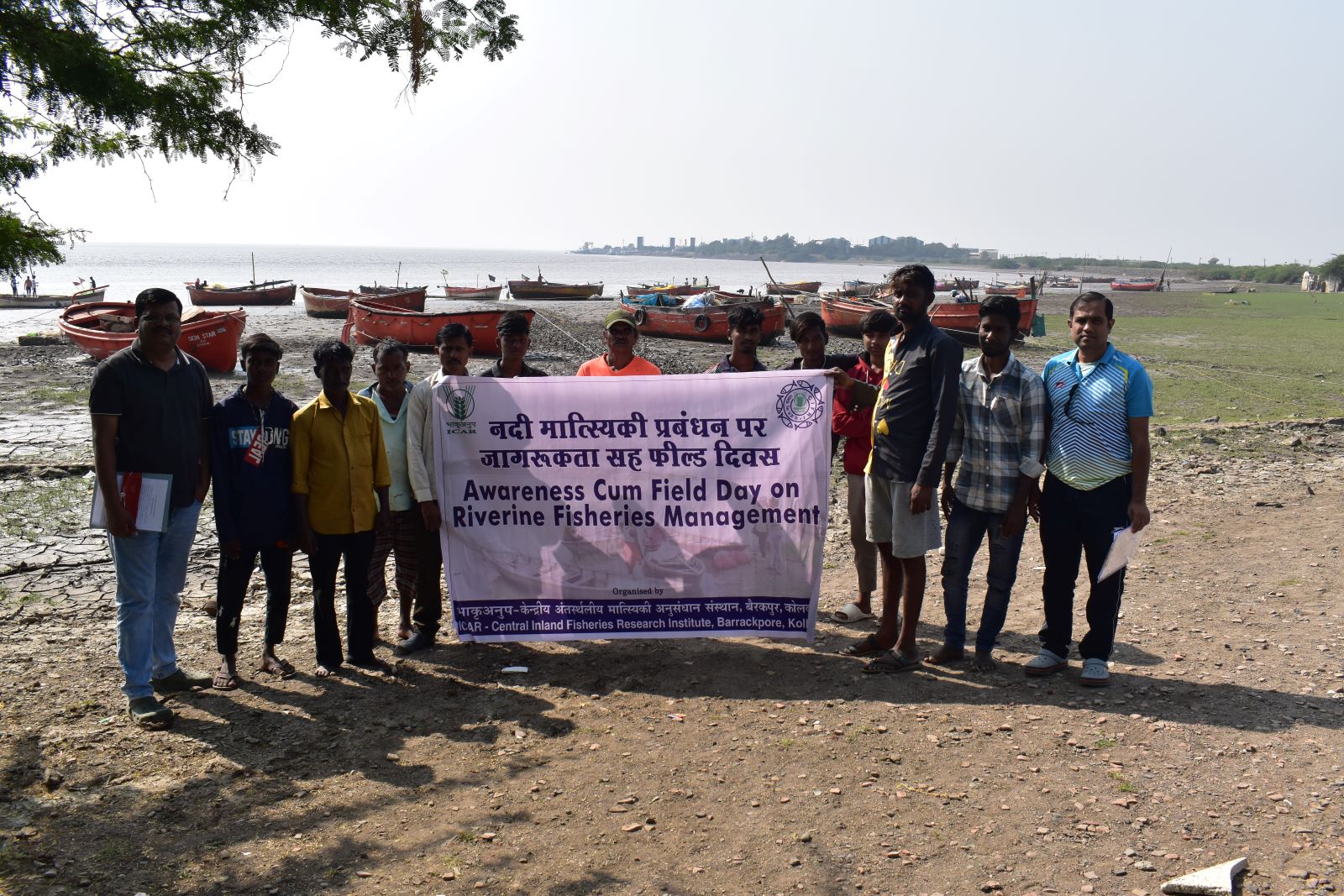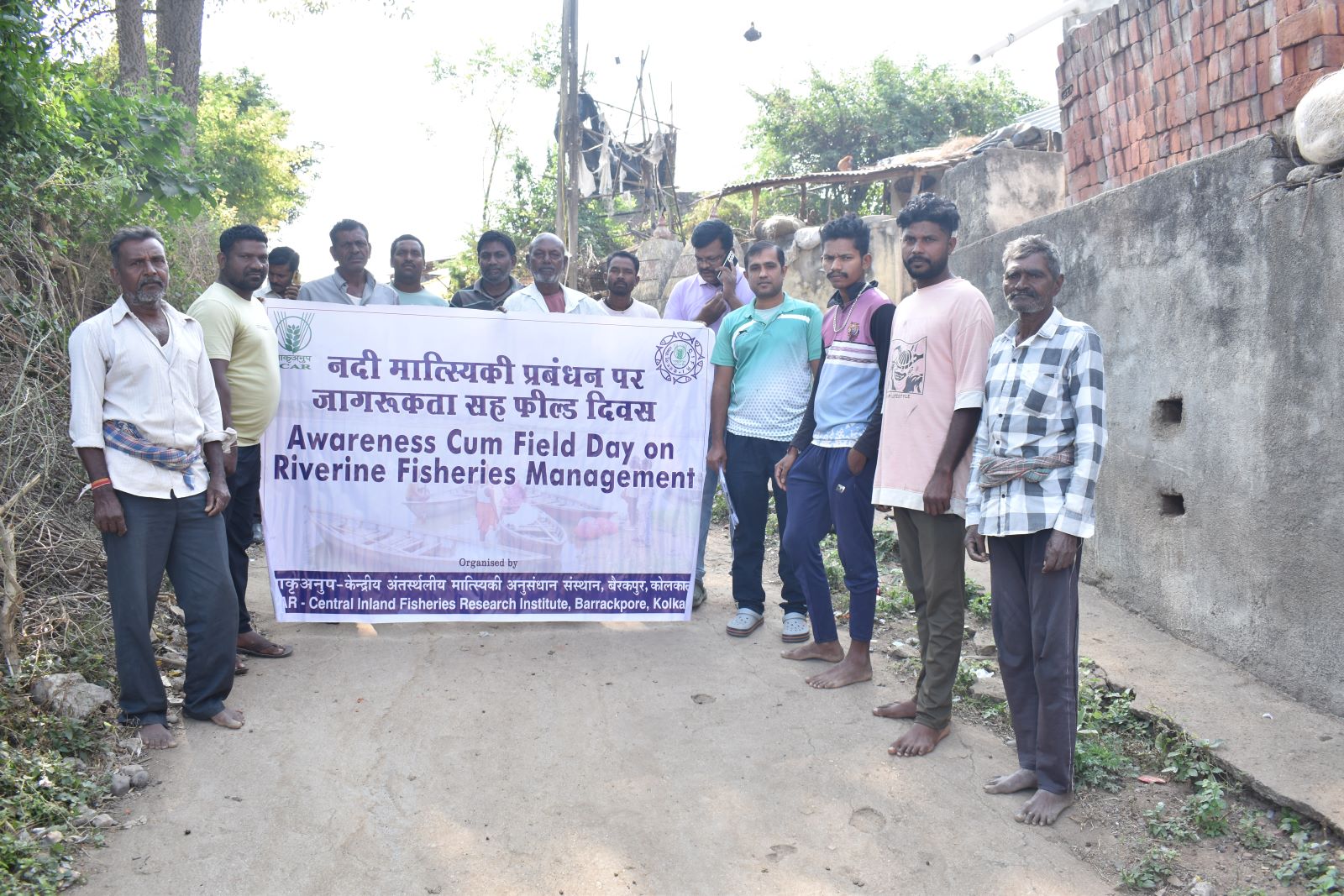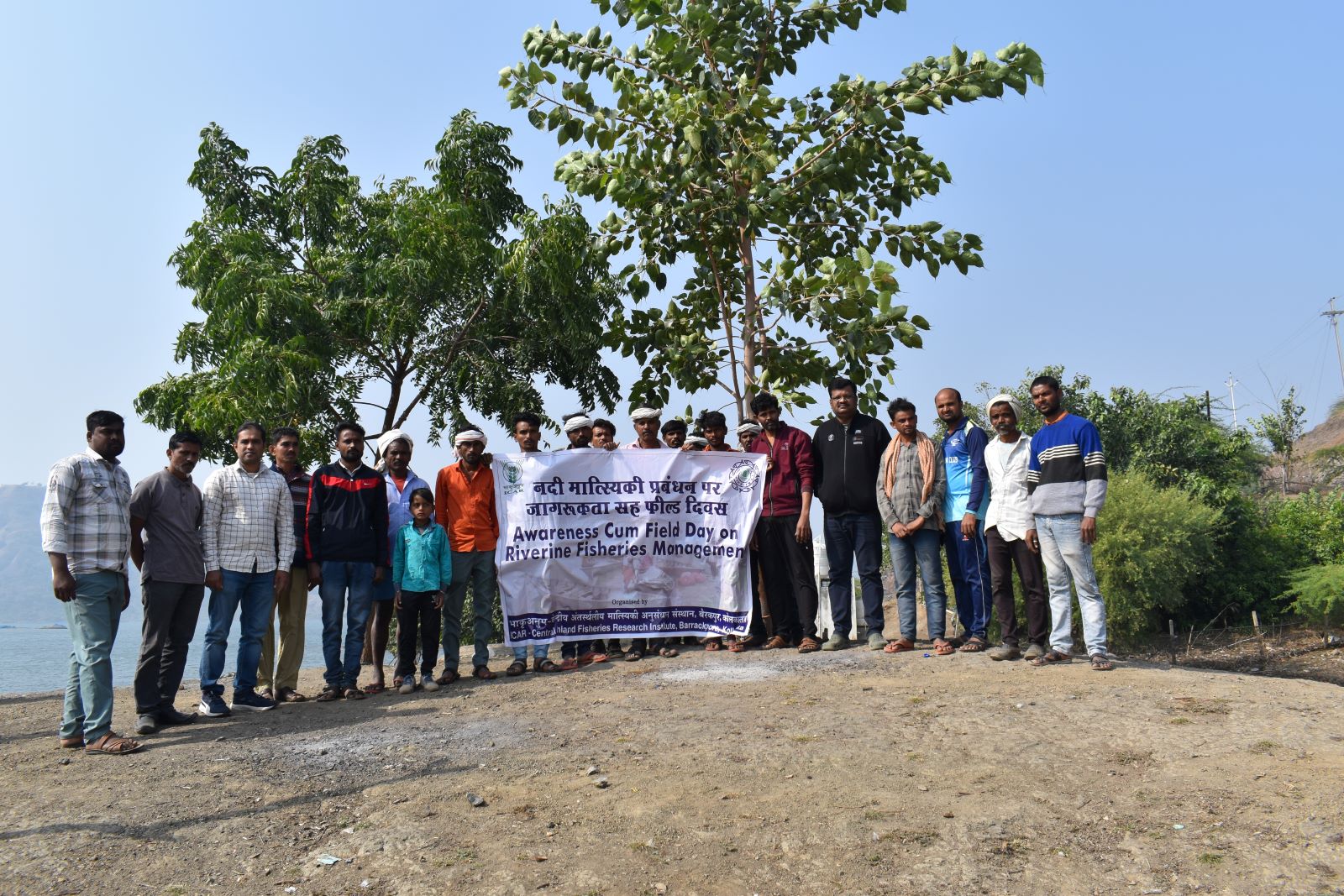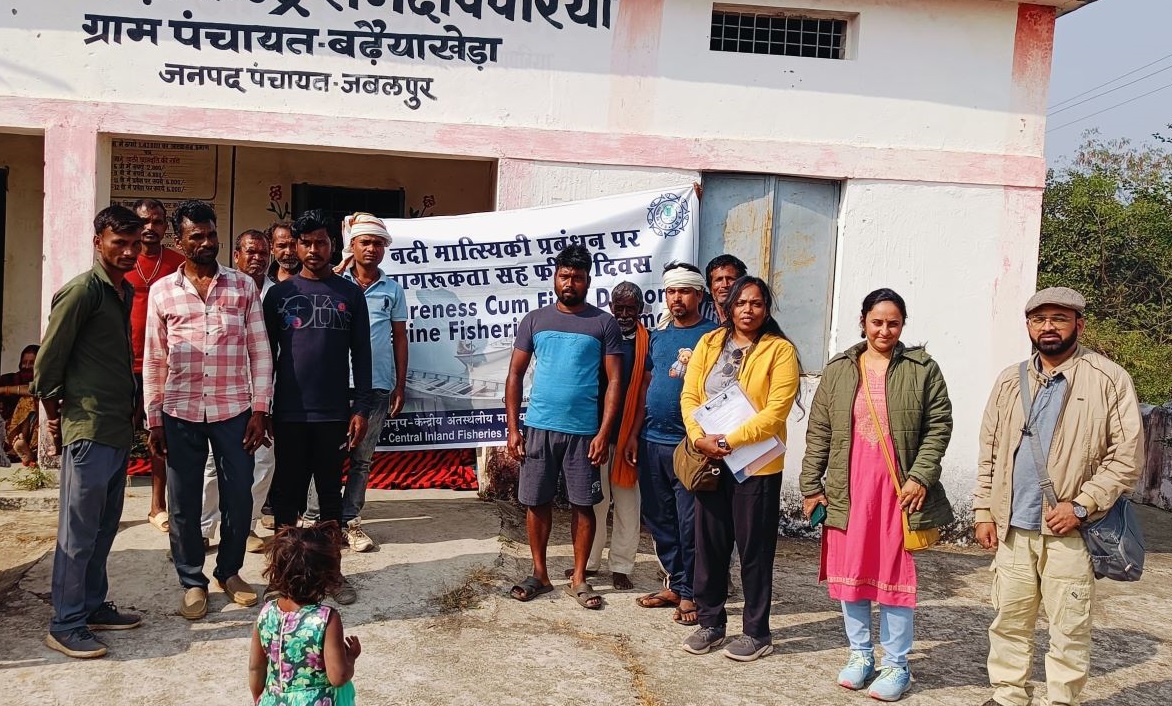Overview
Publications
Recruitment
Intranet
CIFRI Corners'
The Narmada River plays a crucial role in sustaining the livelihoods of numerous fisher families throughout its course from Amarkantak to Ambetha. Local fishermen, referred to as "Kevats," use artisanal fishing techniques, frequently employing nets, traps, and traditional boats. Fishing is the primary livelihood to majority of the fishers to meet their daily needs, which include education, healthcare, and basic sustenance. However, overfishing, destructive fishing are major threats to sustainability of fisheries of many rivers and there is a need to generate awareness among the local fisher communities for community-driven sustainable fisheries management of rivers.




The awareness programs were organized by a scientific team comprised of Dr. S.P. Kamble, Dr. D. Bhakta, Dr. Canciyal Johnson, Mr. Mitesh H. Ramteke, and Mr. S. Kumar, with guidance from Dr. S.K. Manna, Head, REF Division and Dr. Basanta K. Das, Director, ICAR-CIFRI, as part of the ongoing project on “Estimation of fish catch, diversity, and socio-economics of fishers of Narmada River towards fisheries and livelihood sustainability.”










